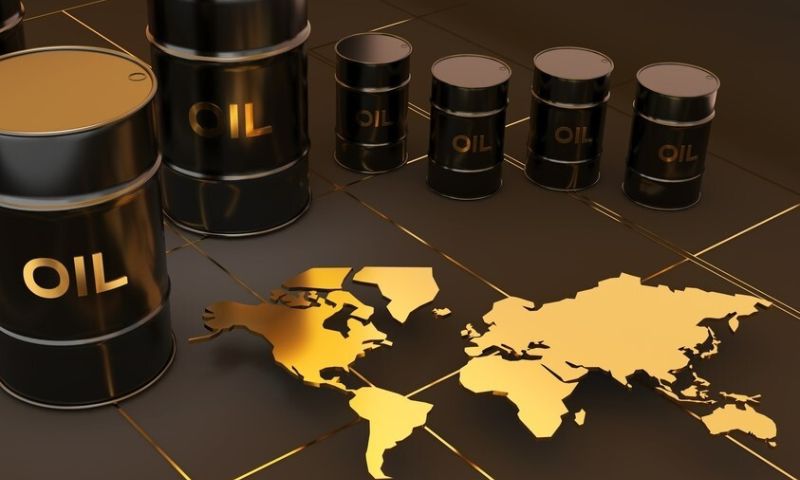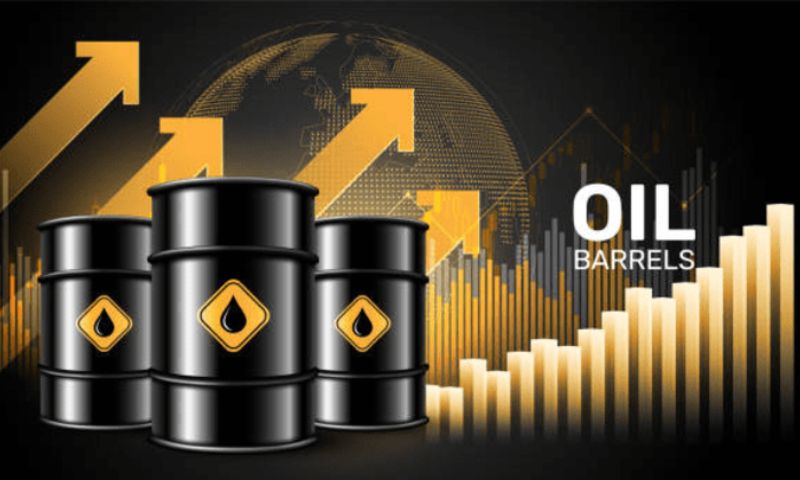Oil prices and geopolitical tensions are hot topics, and they’re tied closer together than you might think. Each move on the global stage can send prices soaring or plummeting, and I’m here to guide you through this complex dance. Navigating the storm isn’t easy with the noise of daily headlines and expert predictions. You need a clear, simple breakdown, and that’s exactly what I provide. We’ll uncover how oil markets swing with world events and what this means for you. Dive into the dynamics of OPEC, grasp the impact of sanctions, and get ahead on the future of energy. Let’s demystify the surge together!
Understanding the Current Oil Market Volatility
The Ripple Effects of Geopolitical Tensions
Oil prices jump when the world gets tense, especially with wars. Why? Wars can stop oil from flowing freely. They make people worried. When folks worry, prices often go up. Remember, oil moves the world. Cars, trucks, and factories need it to run. So when there’s less oil or people think there might be less soon, prices climb.
Now, let’s dive deeper. Wars can damage oil pipes and tanks. They can block big ships from taking oil to where it’s needed. This all makes oil rare, like a toy that everyone wants but can’t find in stores. When things are rare, they often cost more.
Countries can also be a big part of why oil prices change. Some can pump more oil to help when there’s not enough. But when they don’t or can’t, prices stay high. We call these effects ‘ripple’ because they start in one place and spread far and wide, just like ripples in a pond.
Insights into OPEC’s Influence on Global Energy Prices
Now let’s talk about OPEC. That’s a group of countries that work together on oil stuff. These folks have a big say in how much oil costs. How? They decide how much oil they’ll dig up and sell. If they want prices to go higher, they might pump less oil. If they want more oil out there, they pump more.
But OPEC’s choices are not just about money. They also look at what’s happening in the world. Things like wars, laws on what fuel we can use, and even new machines that don’t need oil can change their plans.
These countries look around, they think hard, and they make a choice. Their choice can make our gas cheaper or pricier. It’s a big power they hold. So, when you hear OPEC made a decision, know your wallet might feel it. They’re like a big player in an even bigger game.
And here’s the kicker: other countries watch OPEC. If OPEC sneezes, other countries might catch a cold. That means whatever OPEC does, the rest of the world reacts. It’s all linked.
So that’s your snapshot of how tensions around the world and OPEC moves can shake up oil prices. It’s like a wobbly card tower. One wrong move and everything can tip over. Keep your eyes peeled on the news. The signs are everywhere.
Oil’s journey is wild and filled with twists and turns. It’s a tale of nations, their choices, and our everyday lives. Get this: the trip from deep earth to your car is one big adventure. It’s packed with plots and risks at every bend. The more you know, the less those price signs will surprise you. Stay tuned. More is always coming down the road.

The Geopolitical Chessboard and Oil Pricing
Analyzing Sanctions and Their Impact on Oil Exporting Countries
When a country faces sanctions, its oil market feels it. For instance, when the US or the UN says no to a country’s oil, they can’t sell as much. This means less money for them and sometimes more for others. Like a seesaw, one side goes down, the other might go up.
Sanctions can make oil markets toss and turn. Countries like Iran faced this. They have lots of oil but can’t sell it all. That’s because other countries are afraid to buy. They don’t want trouble from those who set up the sanctions. When you can’t sell what you have, you earn less. This eats into your wallet.
Military Conflicts and Energy Policy Dynamics
A war can turn the oil market upside down. Think about a barrel of apples. You shake it hard, and apples fall out. That’s what happens with oil when there’s a fight. Supply lines can get cut, and it’s harder to pump oil or send it to where it’s needed. This makes people worry. They think, “Will there be enough oil?” This fear can bump up oil prices.
Let’s chat about what goes on behind the scenes, in energy policy. Countries plan how to use energy. They figure out how to keep lights on even if there is trouble. Wars can make them change these plans quick. They might look for more oil, or try other fuels. This switch-up can shake things up in oil markets.
Policies need to bend and twist when there’s a conflict. Take it like a game of soccer. When someone kicks the ball hard, the goalie has to jump to catch it. That’s what countries do with energy policy. They move fast to keep their energy flowing. Whether it’s making more or using less, they want to keep away from the dark.
Now, you’ve seen how things like sanctions and wars make oil markets jump around. Countries that can’t sell their oil get hit hard. And places where there’s fighting can send waves across the world that push up prices. It’s a big chess game, with countries making moves to protect their energy. Next time you hear about these things in the news, you’ll know why that matters for oil.
Strategic Players in the Oil Markets
Russia, Iran, and Venezuela: Navigating Through Turbulence
These nations often hit the news for rocking the oil markets. Why does this happen? Sanctions and political unrest often lead to less oil coming out of these countries. When they can’t sell as much, buyers scramble to find oil elsewhere. That’s when prices can start to soar. But, why do these countries matter so much?
Take Russia, a huge player in the game of oil. Their sales can shift global energy prices big time. If there’s a bump in the road—say, political tension with another country—buyers worldwide feel the jolt. They worry about where they’ll get oil now. That fear can cause a spike in oil market volatility.
Then we have Iran. They sit on a sea of oil but face tough rules that limit their selling power. These rules come from countries that don’t see eye to eye with Iran on some big issues. If those rules change, like with the Iran nuclear deal, it could shake up the international oil trade.
And don’t forget Venezuela. Once a top oil shipper, now they face tough times. They too have to deal with sanctions. These hit their ability to sell oil abroad. This means the impact of Venezuela on the oil market can stir up energy sector anxiety.
US Shale Production in the Global Geopolitical Arena
Now, let’s chat about our backyard—US shale production. It’s a game-changer. Thanks to new ways to get oil from rock, the US pumps out loads of oil now. This boom means the US needs less oil from other places. But, it’s not just about how much oil we produce; it’s also about the moves we make on the world stage.
US shale can ease the effect of war on oil. Say there’s a conflict that makes oil hard to get. US oil can help fill the gap. This lessens crude oil supply disruptions. It can be like a cushion when things get rough in oil-rich regions.
But there’s a flip side. As US shale climbs, other producers might feel the squeeze. OPEC— a group of oil-exporting friends—watches this closely. Their OPEC decisions impact how much oil hits the market. If the US pumps out more, OPEC may decide to pump less to keep prices from diving.
The US has to make smart plays here. For example, oil price speculation can rise if we ship more shale oil abroad. That could lead to higher gas prices back home. No one likes that! So we think hard about the balance between selling oil abroad and keeping gas affordable for folks driving to work or taking kids to school.
These players and their moves keep us on our toes. We’ve got to stay sharp and watch how global events, like a new energy policy or even a tweet, can send oil futures up or down in a flash. Understanding these dynamics helps us ride out the storm of oil prices without getting soaked.

The Future of Oil: Alternative Energy and Economic Implications
Shifts in Energy Policy and the Push for Renewables
Every day we see more solar panels and wind mills. The world is changing. We want clean air and less harm to our planet. This means we use less oil. We make big shifts in how we make and use energy. Countries across the globe are setting new rules to promote these changes. They want more energy from the sun and wind, and less from oil.
When folks use less oil, the demand for it goes down. Oil companies then feel the squeeze. They know they must change or get left behind. This push for renewables also impacts the jobs market, tech investments, and how countries work with each other.
Oil Price Fluctuations and Their Economic Repercussions
Consider what happens when oil prices jump up or slide down. High oil prices can hurt a family’s wallet hard. They cause everything to cost more, like food and travel. But if prices fall, countries that sell oil feel the pinch. They might not have enough cash to run their lands.
Also, think about wars and tensions in places that have lots of oil. When trouble hits there, it can scare people. This fear can make oil prices shoot up. Big oil buyers might worry about getting enough oil. So, they buy more just in case. This sudden rush bumps up prices even more.
Take a look at OPEC. It’s a group of countries that decide about a lot of the world’s oil. Their choices can make prices rise or fall a lot. It’s like they turn a big knob that controls the flow of oil across the planet. If they make less oil, prices usually jump up.
Then, there are countries with rules that stop some oil sales, like sanctions. They can limit how much oil flows from one country to others. This makes the oil market shake up. It’s like a game where some players must sit out. The rest of the players get more chances to sell their oil.
We also must keep an eye on new fights or old ones heating up again. Wars are not just bad news for people and peace. They can also block oil from getting to where it needs to go. Ships and trucks carrying oil might have to take long routes. This can make oil pricey because it costs more to move it.
Now, let’s chat about the future stuff, like cars that don’t need gas. Electric cars are a big deal. More people want them. So, less oil will be needed to run cars. But making these cars and their batteries needs energy too. We’re figuring out how to do this without making more pollution.
In all these changes, it’s not just about the here and now. It’s about setting up a safe and clean future. So, prices go up and down—the oil world is like a sea with waves of change. Some folks get excited, some get nervous, but we all row through it together. It’s a big move to less oily waters and skies without so much smoke.
That’s our trek to use less oil. It’s not just one person or place. It’s a worldwide team-up for our home, Earth. We’re all part of this shift, making choices that add up to a big change.
In this post, we dove into oil market shakes and why they happen. We saw how fights between nations, OPEC’s choices, and sanctions change oil costs. These issues matter to us all because they can change gas prices and heating costs at home.
We also learned about big oil players like Russia, Iran, the U.S., and how their choices move the market. Then, we thought about the future, like new energy types and how they could shift our world.
In the end, what we pay at the pump is tied to a complex global game. But, steps towards other energy sources might cool down these oil ups and downs. Keep an eye on how countries act and on new tech. They both have the power to stir up or settle the oil scene that impacts your wallet.
Q&A :
How do oil prices respond to rising geopolitical tensions?
Geopolitical tensions often lead to uncertainty in global markets, which can result in fluctuations in oil prices. Typically, when tensions rise, especially in regions that are key oil producers, prices may surge due to potential supply disruptions or the risk thereof.
What geopolitical regions have the most impact on oil prices?
The Middle East, being one of the largest oil-producing regions in the world, tends to have a significant impact on oil prices when geopolitical tensions escalate. Additionally, areas like the South China Sea and Eastern Europe, particularly when there are disputes involving major oil and gas producing nations, can also influence the market.
Can geopolitical tensions lead to long-term changes in oil prices?
While geopolitical events can cause immediate spikes or drops in oil prices, whether these changes have long-term effects often depends on the duration and severity of the situation. Prolonged conflicts or tensions can lead to sustained price changes by altering supply-demand dynamics.
How should investors react to oil price volatility driven by geopolitical unrest?
Investors might consider a range of strategies in response to volatility, such as diversifying their portfolio to mitigate risk or taking a more defensive stance by investing in safer assets. Some might see volatility as an opportunity for strategic investments, though it is important to stay informed and exercise caution.
What measures do governments take to stabilize oil prices during geopolitical tensions?
Governments can tap into strategic petroleum reserves to alleviate supply shortages and price hikes. They may also engage in diplomatic relations or participate in international negotiations to de-escalate tensions. In certain cases, subsidies or price controls might be implemented temporarily to stabilize the domestic market.




